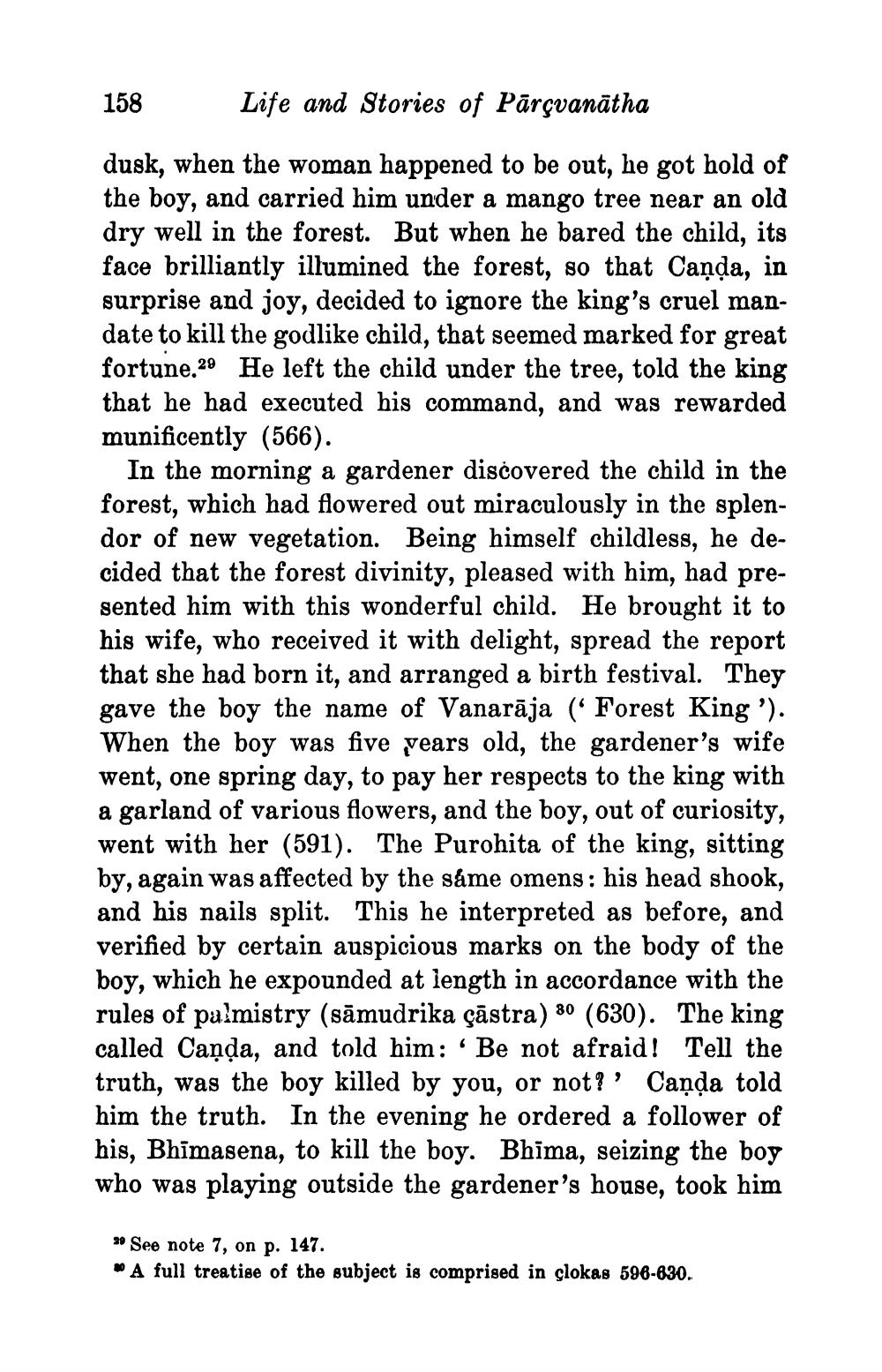________________
158
Life and Stories of Pārçvanātha
dusk, when the woman happened to be out, he got hold of the boy, and carried him under a mango tree near an old dry well in the forest. But when he bared the child, its face brilliantly illumined the forest, so that Caņda, in surprise and joy, decided to ignore the king's cruel mandate to kill the godlike child, that seemed marked for great fortune.29 He left the child under the tree, told the king that he had executed his command, and was rewarded munificently (566).
In the morning a gardener discovered the child in the forest, which had flowered out miraculously in the splendor of new vegetation. Being himself childless, he decided that the forest divinity, pleased with him, had presented him with this wonderful child. He brought it to his wife, who received it with delight, spread the report that she had born it, and arranged a birth festival. They gave the boy the name of Vanarāja ( Forest King '). When the boy was five years old, the gardener's wife went, one spring day, to pay her respects to the king with a garland of various flowers, and the boy, out of curiosity, went with her (591). The Purohita of the king, sitting by, again was affected by the same omens: his head shook, and his nails split. This he interpreted as before, and verified by certain auspicious marks on the body of the boy, which he expounded at length in accordance with the rules of palmistry (sāmudrika çāstra) 80 (630). The king called Caņda, and told him: Be not afraid! Tell the truth, was the boy killed by you, or not?! Caņda told him the truth. In the evening he ordered a follower of his, Bhimasena, to kill the boy. Bhima, seizing the boy who was playing outside the gardener's house, took him
** See note 7, on p. 147. - A full treatise of the subject is comprised in clokas 596-630.




